Preeclampsia, or severe gestosis, is a complication that occurs in about 4-5% of women during pregnancy. Pathology begins in the first trimester, and clinical manifestations occur most often after 20 weeks.
Symptoms of preeclampsia
The key symptoms are high blood pressure (hypertension), excessive accumulation of fluid in the body (edema) and impaired kidney function (proteinuria). In addition, there are symptoms that may indirectly indicate the presence of preeclampsia - a sharp significant gain in body weight, headaches, nausea, blurred vision.
Causes of preeclampsia
To date, science does not know the true cause of preeclampsia. However, there are relative signs that may indicate a woman's tendency to develop this condition.

Risk factors:
- age under 19 or over 40;
- multiple pregnancies;
- concomitant chronic diseases, for example, diabetes mellitus;
- high blood pressure before pregnancy;
- the presence of preeclampsia during previous pregnancies;
- pathology of the heart and blood vessels; heredity - the most modern studies have revealed a genetic factor in predisposition to preeclampsia.
Classification of preeclampsia
There are several degrees of preeclampsia: mild, moderate and severe.
The severity is determined by several parameters (the so-called Zangemeister triad) - blood pressure, protein concentration in urine and the degree of swelling.
A mild degree can be indicated with a low concentration of protein in the urine (up to 0.3 g/l), blood pressure 130-140 mmHg and minor edema.
The average degree is manifested by more serious symptoms: complications from the urinary system, protein concentration in urine over 0.3 g /l and an increase in blood pressure to 140/90-160/100.
Severe preeclampsia is characterized not only by a deterioration in the parameters of the Zangemeister triad (blood pressure above 160, high protein levels in urine and pronounced edema), but also by other concomitant complications, including headaches, blurred vision, heart and kidney failure of a woman, anemia, decreased platelet count in the blood, delayed development and growth of the fetus
A doctor can also suspect a severe form with minor changes in blood pressure and a small concentration of protein in the urine. For example, if fetal hypotrophy is detected on ultrasound examination - a discrepancy between the weight and development of the fetus and the duration of pregnancy.
Diagnosis and prevention of preeclampsia in the EMC clinic
Early diagnosis of gestosis in pregnant women helps to stop complications. The EMC clinic is equipped with everything necessary for the comprehensive diagnosis of preeclampsia - a laboratory complex where any type of tests can be performed, departments of radiation (ultrasound, CT, MRI) and functional diagnostics (CTG), comfortable modern hospitals. If necessary, you can get consultations from doctors of any specialties and medical councils.
We recommend that all pregnant women regularly visit an obstetrician-gynecologist from an early stage and undergo examinations: blood pressure measurement, determination of protein levels in urine, monitoring the dynamics of weight gain, coagulogram, general blood test, ultrasound of internal organs and fetus during pregnancy.
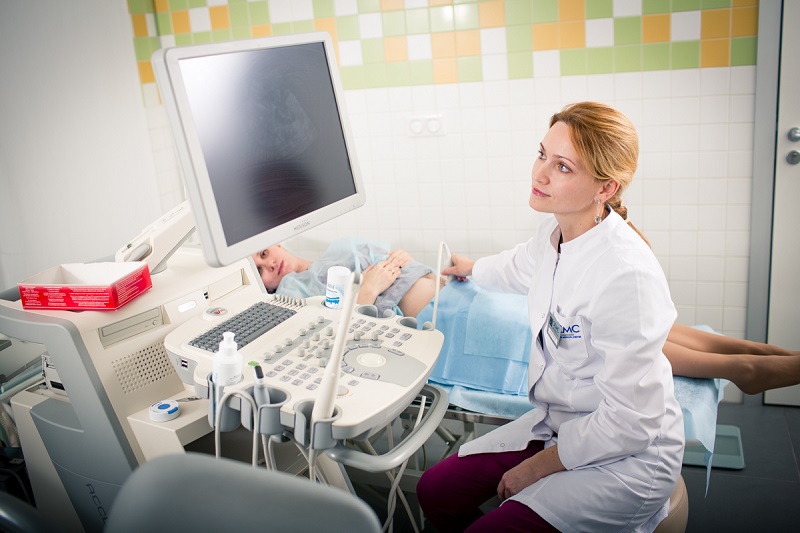
In the first trimester, it is necessary to undergo screening: the presence or absence of a specific protein will show a woman's predisposition to the development of preeclampsia. If necessary, an obstetrician-gynecologist may prescribe consultations with doctors of related specialties - internists, hematologists, ophthalmologists, endocrinologists, cardiologists, and others. These are specialists who help to carry out comprehensive diagnostics and reduce the risks of severe cases of preeclampsia. In the second trimester, it is recommended to undergo ultrasound screening to make sure that the baby's development and growth are appropriate. After 30 weeks, a pregnant woman should come to the clinic regularly for ultrasound, CTG, and Dopplerometry. If there is a genetic predisposition to preeclampsia, diseases of the cardiovascular, hematopoietic, endocrine systems, respiratory diseases and other pathologies, the patient will be managed not only by an obstetrician-gynecologist, but also by doctors of other specialties.
Preeclampsia treatment at the EMC clinic
The treatment of preeclampsia at the EMC clinic is carried out according to international protocols. Treatment tactics are selected individually after a comprehensive examination and, if necessary, a consultation. Mild gestosis can be corrected on an outpatient basis by a diet and a gentle regimen prescribed by an obstetrician-gynecologist. For the treatment of moderate to severe preeclampsia, hospitalization will be required. The EMC hospitals in Moscow have everything necessary for effective treatment - comfortable rooms and round-the-clock services that guarantee rest and relaxation, highly qualified doctors and nurses, operating rooms ready at any time to receive a patient for emergency delivery, adult and pediatric intensive care units for the care of children born prematurely, access to a laboratory diagnostic complex, consultations of doctors of any specialties.
.webp)





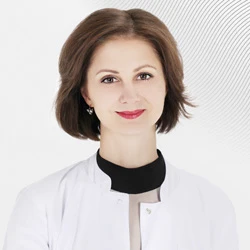
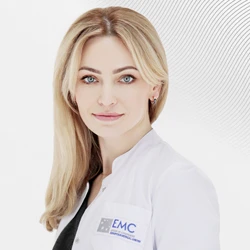
.webp)
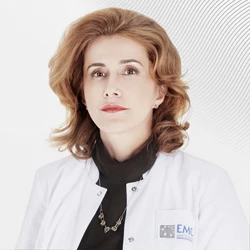


.webp)
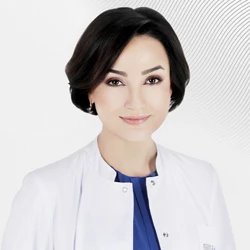


.webp)
